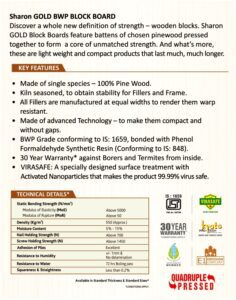
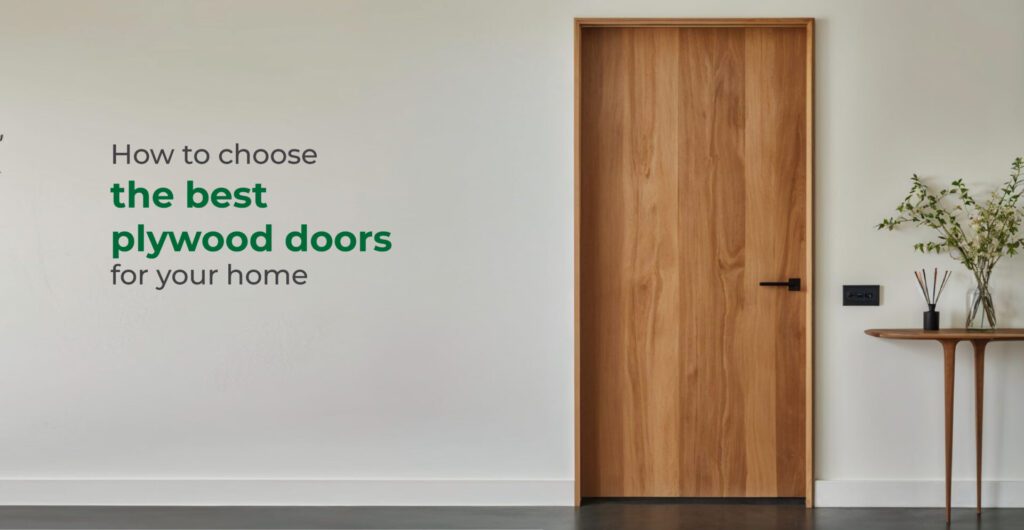
When it comes to selecting the right material for doors, plywood stands out as one of the best choices. They offer a perfect combination of durability, aesthetics, and cost-effectiveness, making them a preferred alternative to solid wood doors.
Moisture-resistant (MR) Plywood is ideal for interiors, Boiling Water-Proof (BWP) Plywood is best for bathrooms and kitchens, and Hardwood Plywood is suitable for main doors due to its durability. Veneer-Faced Plywood offers a premium finish. However, the best plywood for doors depends on the usage.
This guide will take you through everything you need to know about plywood doors, from their advantages to the best types and selection tips, ensuring you make an informed decision.
A plywood door offers several advantages over traditional wooden doors due to its layered construction and engineered strength. Here are some key reasons why plywood doors are an excellent choice:
Plywood consists of multiple layers of wood veneers bonded together, making it stronger and more resistant to warping compared to solid wood.
Unlike natural wood, high-quality plywood offers better resistance to humidity and moisture, reducing the chances of swelling or shrinking.
Plywood gives the look and feel of solid wood but at a fraction of the price, making it a budget-friendly option.
Available in various finishes and textures, plywood allows customization to match different interior styles.
Plywood is often manufactured using sustainable practices, making it an environmentally responsible choice.
Not all plywood is the same, and choosing the right type depends on where and how the door will be used. Let’s explore some of the best plywood options for doors:
If you’re still wondering why a plywood door is a superior choice, here are some additional advantages:
Resistant to Termites & Pests – High-grade plywood is chemically treated to prevent termite infestations.
Lightweight Yet Strong – Compared to solid wood, plywood doors are easier to install and handle while maintaining excellent strength.
Better Insulation – Plywood provides thermal and sound insulation, making it a great choice for home comfort.
Customizable Designs – Whether you prefer a natural wood finish, painted look, or laminate, plywood doors can be customized effortlessly.
Minimal Maintenance – Requires less upkeep than traditional wooden doors, saving time and maintenance costs.
Choosing the right plywood door requires careful consideration. Here’s a buying guide to help you make the best choice:
A plywood door is a versatile and cost-effective solution that offers durability, aesthetics, and long-term value. For interior spaces, moisture-resistant (MR) plywood is a reliable choice, while boiling water-proof (BWP) plywood is ideal for areas prone to moisture, such as kitchens and bathrooms. If strength and security are key factors, hardwood or flush door plywood ensures resilience, whereas veneer-faced plywood enhances the visual appeal with a premium finish. Selecting high-quality plywood from a trusted manufacturer like SharonPly guarantees superior performance, longevity, and resistance to environmental factors, making your doors a lasting investment.
Hardwood plywood is the best choice for main doors due to its high durability, strength, and security.
BWP (Boiling Water-Proof) plywood is ideal for bathroom doors because it resists moisture, humidity, and fungal growth.
A plywood door should be 25mm to 30mm thick for optimal strength and longevity.
No, MR plywood is moisture-resistant but not fully waterproof. It’s suitable for interior doors but not for wet areas.
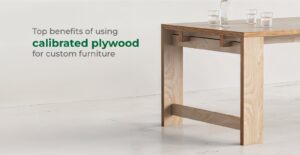

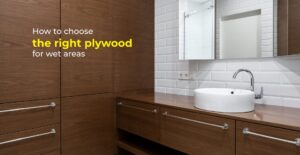
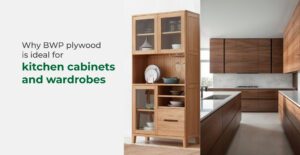

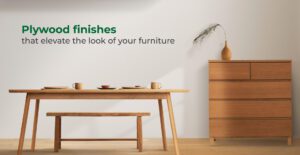




Users understand that SHARONPLY is committed to protecting the User’s privacy and shall take all efforts to protect any personal data provided to the Website by reasonable security safeguards against such risks as loss or unauthorised use, destruction, modification or disclosure of data, However, in case of any lapse, SHARONPLY shall not be held responsible for any effect or consequences thereof. The Website uses cookies to track usage of the path of the User. Since most web browsers automatically accept cookies, User can edit User’s browser options to block them if User does not want the Website to use cookies to track usage of the path of the User.
SHARONPLY undertakes not to disclose, except as otherwise provided, the personal information provided by the User to any person, unless such action is necessary to: –
By filling up any form on the Website User automatically grants SHARONPLY a royalty-free, perpetual, irrevocable non-exclusive license to use, reproduce, publish, edit, distribute, and publicly display the information given in the form and to sublicense such rights.
Any queries regarding the SHARONPLY’s privacy policy, may be sent to admin@sharonply.com.
